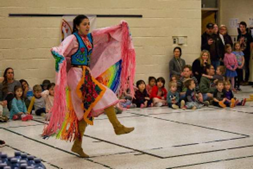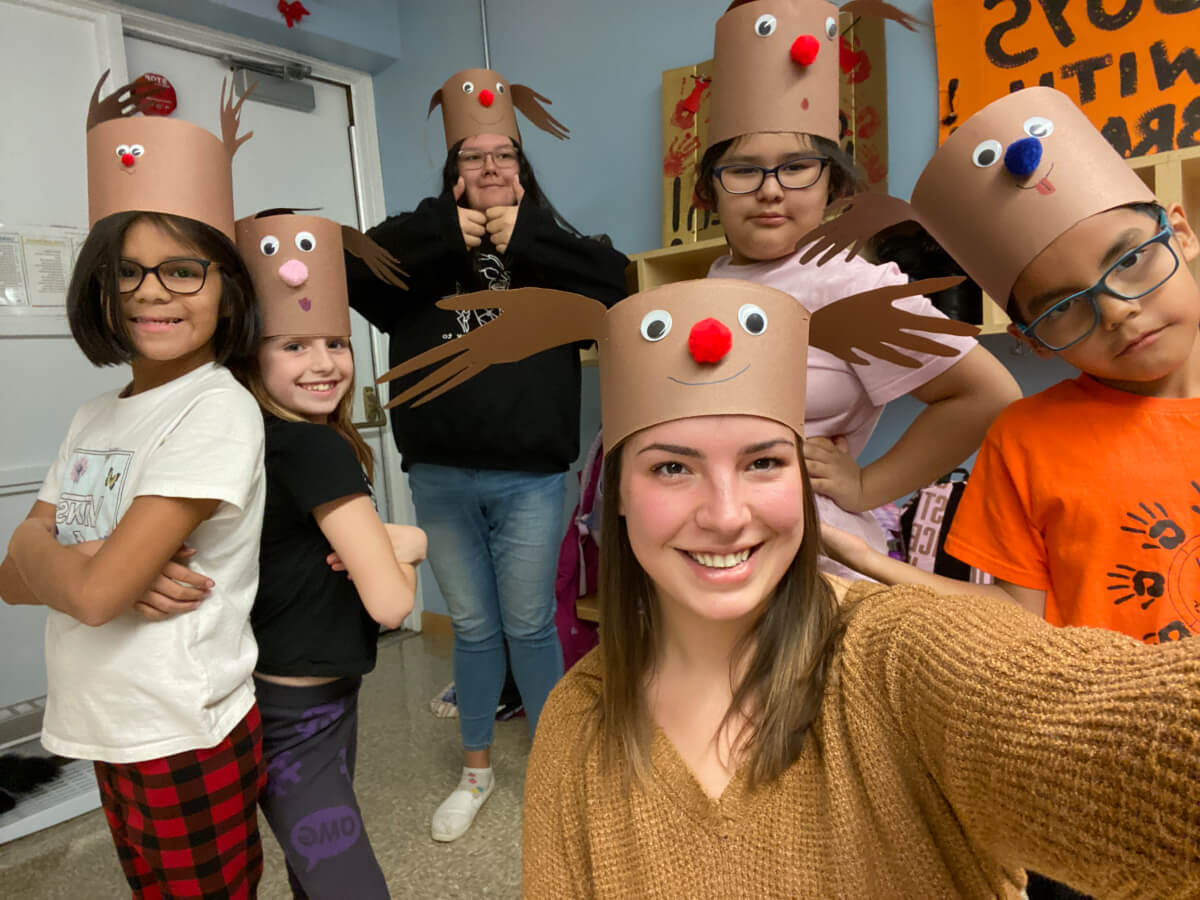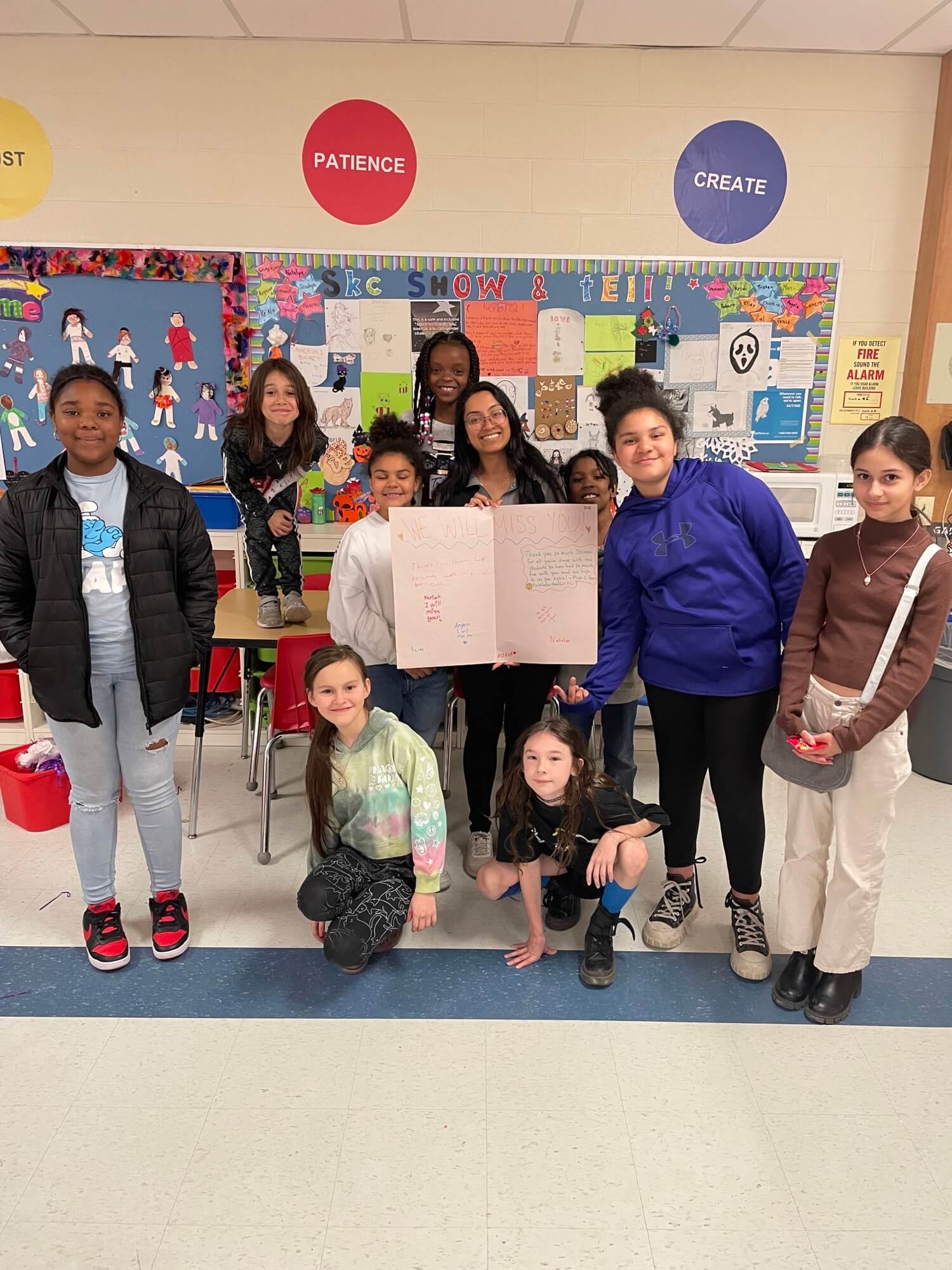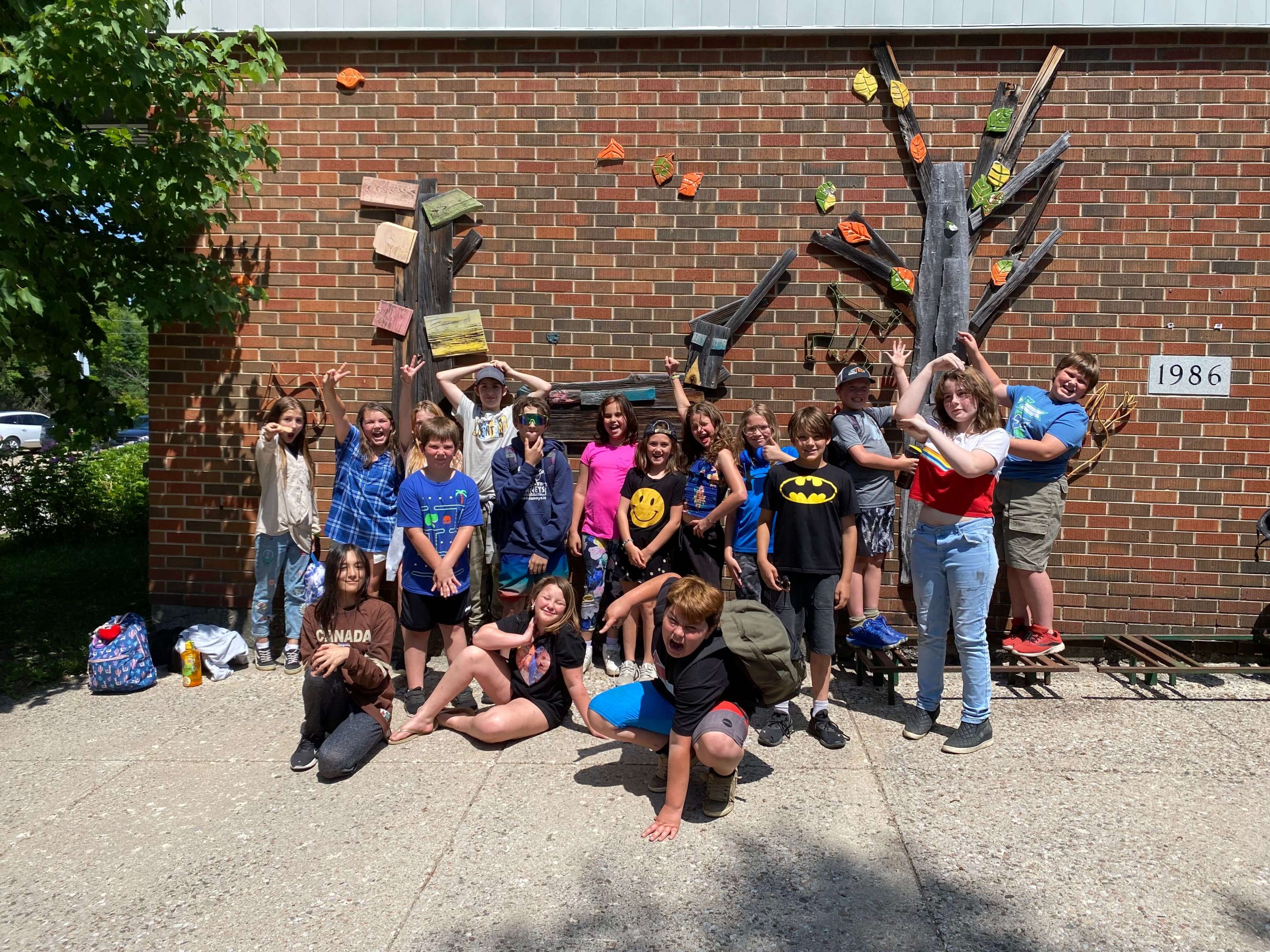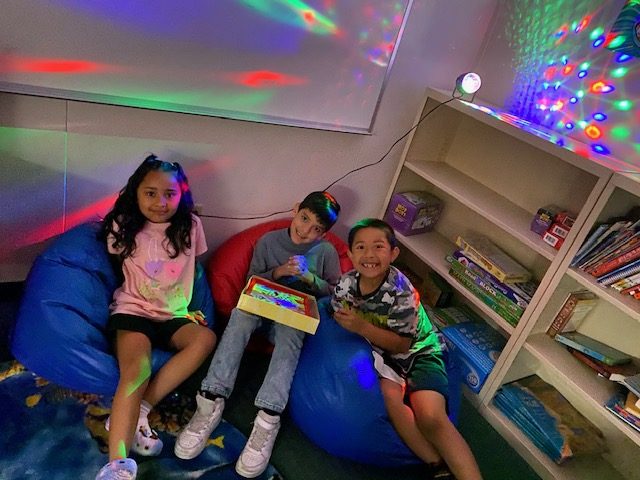We wish to say “Chii-meegwech” to the Shania Kids Can, United Way and various other donors who have provided funding, expertise and who have volunteered their time to the Biwaase’aa program at St. Vincent’s School. We could not have done this without your contributions. Chii-meegwech!
Biwaase’aa consists of four main components: After-School Program, In-School Program, Food Security/Nutrition Program and the Little Eagles Mentorship Program. The following is a summary of the year’s events from September 2022 to August 2023.
At the start of the school year, all our Youth Outreach Workers (YOW) were trained or retrained in first aid/CPR, safe food handling and mental health. Other training included PPE training, program manual reviews, code of ethics discussions, health and safety, anaphylaxis, school policies, confidentiality, time management, bundle teachings, medicine wheel teachings, Shannon’s Dream, Jordan’s Principle, healthy menus and Indigenous wellness.
Biwaase’aa is a wholistic program designed to increase life skills of Indigenous children, youth and their families through academic achievement, emotional and social development, cultural awareness, and nutritional support. The Biwaase’aa program is inclusive of all students (Indigenous and non-Indigenous) in Thunder Bay.
In-school programming is delivered by traditionally knowledgeable Youth Outreach Workers (YOW) under the supervision of the Biwaase’aa Program Supervisor, who in turn works under the supervision of Shkoday’s Program Director. Part-time After School Assistants (ASA) work with the YOWs on a daily basis to deliver our after-school programming.
After-School
Immersed in Indigenous culture and traditions, the Biwaase’aa After-School Program is intended to provide opportunities to youth that they may not otherwise be able to access. All programming/activities encompass four components:
Physical – to develop healthier and more active youth.
Cultural – fostering identity and pride in the culture and who we are as Indigenous people.
Mental – increasing school attachment and engagement and fostering a knowledge of well-being.
Emotional – improving leadership, life-skills, cultivating relationships and increasing social well-being.
The Biwaase’aa After-School Program operated in-person all year for the first time since Covid-19 restrictions in the schools and community were lifted. Even with staff shortages, we managed to deliver the program by doubling up YOWs at select locations to ensure proper staff to student ratios.
In-School Program
The Biwaase’aa In-School Program provides the consistent presence of Indigenous YOWs in various schools throughout Thunder Bay. With the lack of sufficient staff, we couldn’t run our in-school program but students who required tutoring, homework or cultural support were referred to Shkoday’s Pathways program.
The YOWs help foster trust, rapport, and security within Indigenous students. This makes for a more comforting and familiar academic environment which increases student success and achievement. This is done through YOW role modelling/mentorship, literacy and numeracy support, cultural teachings and presentations, pow wows and feasts, parent/caregiver engagement, cultural outreach services, and attendance at community events.
We had to modify how we delivered the In-School Program due to insufficient staffing. In addition to flexing physical time between schools, our YOWs created and used teaching videos to supplement in-person teachings when necessary to ensure all our schools had some kind of programming throughout the school year.
A real success for this past year was our ability to host pow wows at all our schools and to even host pow wows at all the public-school board high schools. The pow wows were all well attended and very favourably received.
Little Eagles Mentorship Program
The Biwaase’aa Little Eagles Mentorship program (LEMP) is a seven-week program incorporating the Seven Grandfather Teachings: Respect, Love, Wisdom, Bravery, Honesty, Humility and Truth.
Through traditional teachings, stories, sharing circles and interactions with community leaders and elders, children learn about the importance of cultural identity, values, beliefs and tradition. Children in this program experience improved self- esteem and confidence. They learn life skills that help them deal with racism, bullying and peer pressure. This added support and mentorship helps improve academic performance for those children who have been deemed to require extra attention.
Little Eagles Program participants are referred by principals and teachers who identify students they feel would benefit from participation in the program. Little Eagles sessions include topics such as hand drum making, drumstick making, ribbon skirt making, beaded earrings, beaded lanyards, drum teachings, moccasin making, rattle making, loom beading, cultural crafts, birch bark baskets and regalia.
Traditional games such as lacrosse, “run and scream,” and the “map game” are also featured in the Little Eagles Program. These games enhance the student’s strength, balance, reflexes, hand-eye coordination, accuracy, lung capacity, strategy, intuition and patience, which are skills that the Indigenous hunters and fishermen relied on to feed their communities.
Perhaps the most important feature of the Little Eagles Program is the direct mentorship and guidance the participants receive from Biwaase’aa Indigenous VOWs during programming. One of the most important features of LEMP is the opportunity to build relationships with students while strengthening cultural identity. LEMP provides a time and space for students to feel safe, learn and craft. This can’t happen in the classroom.
Parental Engagement
Parental engagement generally occurs following our After-School Program and as part of our structured activities. With the elimination of public health measures, parental engagement nearly doubled from last year. We were still somewhat limited in offering structured activities due to not having a full staff complement.
Engagement also reflects in-school and ASP communication (in-person, phone calls). This is important to relationship and trust building with families. Families will reach out to VOWs for school support and advice. Engagement also reflects our feasts and other parental engagement events VOWs plan (Bannock and teas, baking nights, craft nights).
Food Security Program
Providing students with healthy food improves their ability to learn, engage in physical activity, and develop positive habits that aid their growth and development. We put significant energy toward ensuring our food security program ran in all our schools all year long. Even as we lost VOWs for a variety of reasons, we remained focused on providing food for the lunch programs at each school.
Traditional teachings related to food, hunting and gathering, and harvesting are usually shared with Biwaase’aa participants and their families at our feasts hosted at every school multiple times each year (fall, winter and spring).
Perception of Outcomes
Student:
Outcome 1: A student from the Little Eagles Mentorship Program (LEMP) told her Youth Outreach Worker (YOW) that she chose to do a project on the seven grandfather teachings so she could share her teachings received during LEMP with her in-school class. The student said she thought everyone should have the opportunity to learn about the seven grandfather teachings.
Outcome 2: During the last LEMP session of the year, a YOW made Ribbon skirts with a few grade 6 girls. On a year-end survey, under the question “what did you learn,” one of the students wrote “Belle cares about me.” Belle is the YOW who helped this student make a ribbon skirt.
Youth Outreach Worker:
Beading Group – Positive Mentorship at St Vincent Catholic School
“I recently started a beading club two days per week, and I work with 3-5 students each time. I worked with the teachers to specifically select students that require additional support, or a brain break during the day. We are beading flowers and medicine wheels. Two students are natural at beading and quickly finished their first piece. They wanted to wait to start their second piece because they wanted to be “just like me” and help teach the other students. Their teachers are reporting an increase in effort and completing work during class time. Some of the students will ask to bring their classwork to the Biwaase’aa room to work on it with me in-between beading. In addition, another student reminds us daily that she wants to gift her finished pieces to her auntie because she is sad after going to a “bad school” a very long time ago. She says she is happy she can be herself at her school.”
Shania Kids Can, the United Way of Thunder Bay and Shkoday are working together to ensure sustainable funding is available for the program at St Vincent’s. We hope you will consider donating to support this program.

